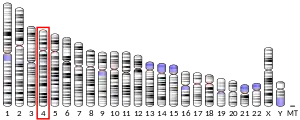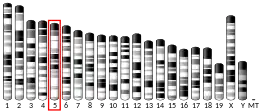| NAAA | |||||||||||||||||||||||||||||||||||||||||||||||||||
|---|---|---|---|---|---|---|---|---|---|---|---|---|---|---|---|---|---|---|---|---|---|---|---|---|---|---|---|---|---|---|---|---|---|---|---|---|---|---|---|---|---|---|---|---|---|---|---|---|---|---|---|
| Identifiers | |||||||||||||||||||||||||||||||||||||||||||||||||||
| Aliases | NAAA, ASAHL, PLT, N-acylethanolamine acid amidase | ||||||||||||||||||||||||||||||||||||||||||||||||||
| External IDs | OMIM: 607469 MGI: 1914361 HomoloGene: 8686 GeneCards: NAAA | ||||||||||||||||||||||||||||||||||||||||||||||||||
| |||||||||||||||||||||||||||||||||||||||||||||||||||
| |||||||||||||||||||||||||||||||||||||||||||||||||||
| |||||||||||||||||||||||||||||||||||||||||||||||||||
| |||||||||||||||||||||||||||||||||||||||||||||||||||
| |||||||||||||||||||||||||||||||||||||||||||||||||||
| Wikidata | |||||||||||||||||||||||||||||||||||||||||||||||||||
| |||||||||||||||||||||||||||||||||||||||||||||||||||
N-acylethanolamine-hydrolyzing acid amidase is an enzyme that in humans is encoded by the NAAA gene.[5][6][7]
Function
This gene encodes an N-acylethanolamine-hydrolyzing enzyme which is highly similar to acid ceramidase. Multiple transcript variants encoding different isoforms have been found for this gene.[7]
References
- 1 2 3 GRCh38: Ensembl release 89: ENSG00000138744 - Ensembl, May 2017
- 1 2 3 GRCm38: Ensembl release 89: ENSMUSG00000029413 - Ensembl, May 2017
- ↑ "Human PubMed Reference:". National Center for Biotechnology Information, U.S. National Library of Medicine.
- ↑ "Mouse PubMed Reference:". National Center for Biotechnology Information, U.S. National Library of Medicine.
- ↑ Hong SB, Li CM, Rhee HJ, Park JH, He X, Levy B, Yoo OJ, Schuchman EH (Feb 2000). "Molecular cloning and characterization of a human cDNA and gene encoding a novel acid ceramidase-like protein". Genomics. 62 (2): 232–41. doi:10.1006/geno.1999.5953. PMID 10610717.
- ↑ Goodchild NL, Wilkinson DA, Mager DL (Dec 1992). "A human endogenous long terminal repeat provides a polyadenylation signal to a novel, alternatively spliced transcript in normal placenta". Gene. 121 (2): 287–94. doi:10.1016/0378-1119(92)90133-A. PMID 1446826.
- 1 2 "Entrez Gene: ASAHL N-acylsphingosine amidohydrolase (acid ceramidase)-like".
External links
- Human NAAA genome location and NAAA gene details page in the UCSC Genome Browser.
Further reading
- Schulze H, Schepers U, Sandhoff K (2008). "Overexpression and mass spectrometry analysis of mature human acid ceramidase". Biol. Chem. 388 (12): 1333–43. doi:10.1515/BC.2007.152. PMID 18020949. S2CID 12612022.
- Zhao LY, Tsuboi K, Okamoto Y, et al. (2008). "Proteolytic activation and glycosylation of N-acylethanolamine-hydrolyzing acid amidase, a lysosomal enzyme involved in the endocannabinoid metabolism". Biochim. Biophys. Acta. 1771 (11): 1397–405. doi:10.1016/j.bbalip.2007.10.002. PMID 17980170.
- Oh JH, Yang JO, Hahn Y, et al. (2006). "Transcriptome analysis of human gastric cancer". Mamm. Genome. 16 (12): 942–54. doi:10.1007/s00335-005-0075-2. PMID 16341674. S2CID 69278.
- Tsuboi K, Sun YX, Okamoto Y, et al. (2005). "Molecular characterization of N-acylethanolamine-hydrolyzing acid amidase, a novel member of the choloylglycine hydrolase family with structural and functional similarity to acid ceramidase". J. Biol. Chem. 280 (12): 11082–92. doi:10.1074/jbc.M413473200. PMID 15655246.
- Huang Y, Tanimukai H, Liu F, et al. (2005). "Elevation of the level and activity of acid ceramidase in Alzheimer's disease brain". Eur. J. Neurosci. 20 (12): 3489–97. doi:10.1111/j.1460-9568.2004.03852.x. PMID 15610181. S2CID 11515970.
- Gerhard DS, Wagner L, Feingold EA, et al. (2004). "The status, quality, and expansion of the NIH full-length cDNA project: the Mammalian Gene Collection (MGC)". Genome Res. 14 (10B): 2121–7. doi:10.1101/gr.2596504. PMC 528928. PMID 15489334.
- Strausberg RL, Feingold EA, Grouse LH, et al. (2003). "Generation and initial analysis of more than 15,000 full-length human and mouse cDNA sequences". Proc. Natl. Acad. Sci. U.S.A. 99 (26): 16899–903. Bibcode:2002PNAS...9916899M. doi:10.1073/pnas.242603899. PMC 139241. PMID 12477932.
- Bonaldo MF, Lennon G, Soares MB (1997). "Normalization and subtraction: two approaches to facilitate gene discovery". Genome Res. 6 (9): 791–806. doi:10.1101/gr.6.9.791. PMID 8889548.
This article is issued from Wikipedia. The text is licensed under Creative Commons - Attribution - Sharealike. Additional terms may apply for the media files.




